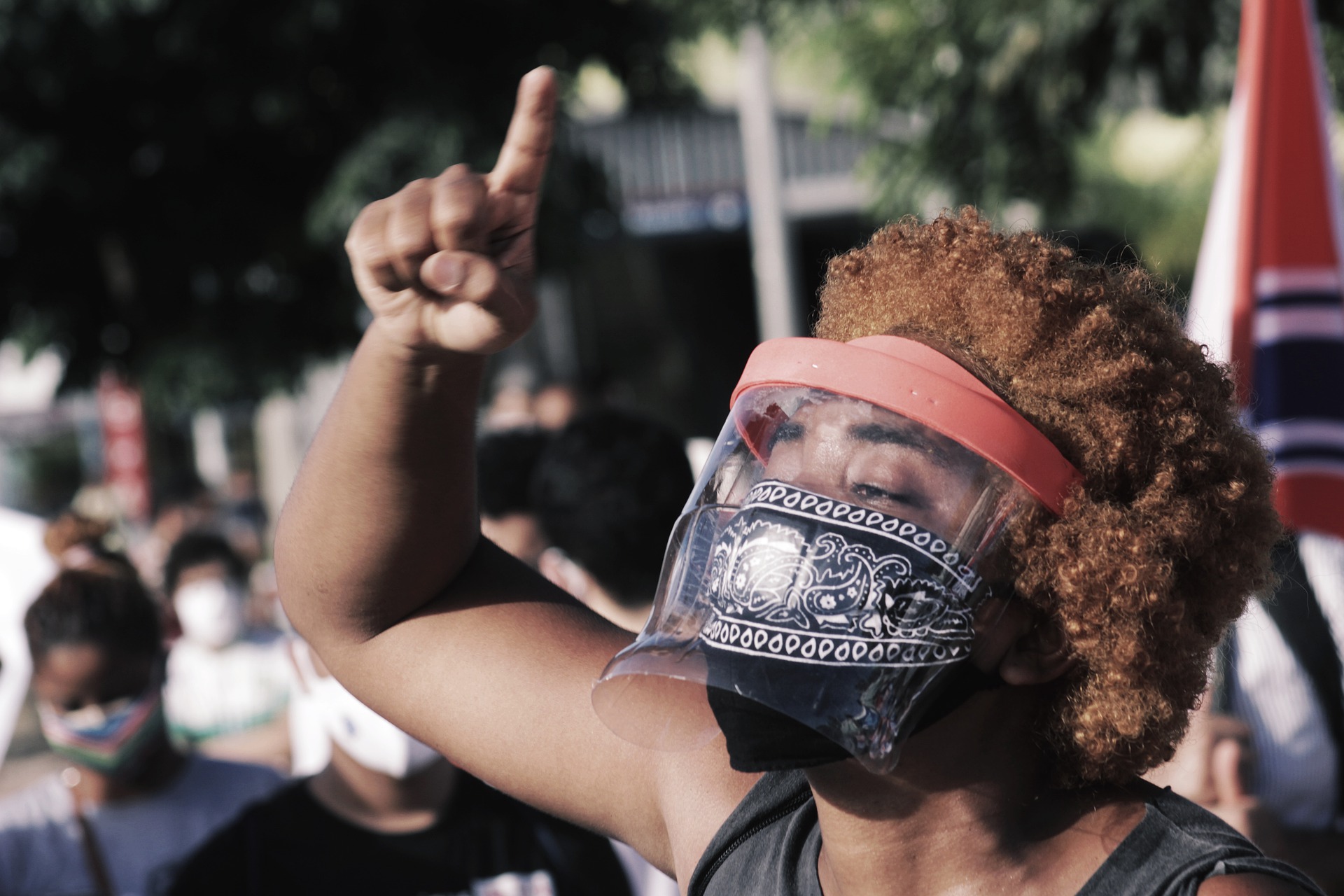Black Lives Matter in Brazil

Protests under the banner of the Black Lives Matter movement erupted across Brazil after the death of Joao Alberto Silveira Freitas. Online Features Editor Becca Wells reports on the incident and the political reaction.
Black Lives Matter protests in Brazil have sparked across the country following harrowing footage in which a Black man, Joao Alberto Silveira Freitas, was beaten to death by a security guard outside a Carrefour supermarket in Porto Alegre. Circulation of camera phone footage on social media has led to the attack’s widespread viewing amongst individuals across the country.
The outrage comes at the tail end of a turbulent year for Black Lives Matter, and a year which has no doubt seen the adoption of BLM as a global discourse. It speaks to a persistent effort amongst the Brazilian population, of which 57% is accounted for by Black and mixed-race citizens.
Bolsonaro refused to speak directly to the family or to the victim
As a close neighbour with the United States, Brazil’s President Jair Bolsonaro has been outwardly hailed as a fascist, Trump supporting “almost-dictator”. In response to Freitas’ death, Bolsonaro refused to speak directly to the family or to the victim, ignoring not just the shambolic abuse of a human life, but still upholding a negligent attitude towards Black lives. Speaking on behalf of the Black Lives Matter movement generally, Bolsonaro exclaimed that “as a man and as a President, I am colourblind”.
Notably, the attack on Freitas occurred on the eve of Black Consciousness Day in Brazil, an important day which Sérgio Camargo, the Head of Brazil’s Palmares Cultural Foundation unfortunately dubbed “a joke”.
Camargo’s job description is to promote Black culture. His election to such a role has led to dismay and frustration amongst Brazil’s centre and left communities. Camargo, an avid supporter of Bolsonaro, and in turn, of President Trump, has made his general feelings surrounding the Black Lives Matter movement public, retweeting a post from the US President saying “LAW & ORDER!”, following the death of George Floyd.
There are certain similarities between the Black Lives Matter protests across Brazil and those within the US. Over the past week, protests at Carrefour supermarkets have led to store closures, broken windows and supermarket stock being set on fire. At least seven federation units including Rio Grande do Sul, São Paulo, Minas Gerais, Ceará, Federal District, Mato Grosso do Sul and Rio de Janeiro, the Black Lives Matter message has been spreading through the national consciousness.
Video footage depicts an officer kneeling on Freitas’ neck; an uncomfortable and disturbing image which holds uncanny likeness to the barbaric George Floyd murder
As a result, two men who allegedly beat Freitas have been detained and are being investigated for homicide. Some video footage depicts an officer kneeling on Freitas’ neck; an uncomfortable and disturbing image which holds uncanny likeness to the barbaric George Floyd murder. Freitas’ lack of ability to defend himself and his subsequent death have brought the President’s remarks surrounding the BLM movement under scrutiny. Though refusing to speak of Freitas specifically, of the BLM movement in general he has been reported saying that “those who instigate the people to discord, fabricating and promoting conflicts […] your place is in the trash!”
Whilst a devastating blow to the BLM movement, it is a remark which has led to tactical protesting, which has been gathering speed across predominantly working-class football fans and spreading to a wider audience over the past week.
One opinion piece mentions the importance of integrity and planning, so as to deliver successful protests and avoid further violence against the Black lives in Brazil. Written as an opinion piece for the Counterfire publication, Orlando Hill reminds his readers that “we have to be careful. We cannot go to the streets any which way”, finalising his commentary by arguing that “it is impossible to be consistent in the fight against racism and not to fight against the very capitalist system that feeds it, and vice versa”.
As a retaliation against Camargo’s dismissal of racism ever existing in Brazil, Hill shines a spotlight directly on the current President’s colour-blindness and speaks to the dangers amongst Brazilian citizens who praise Bolsonaro for such a claim. When Camargo announced that there is no racism in Brazil, he perpetuates the fact that race is still a highly tabooed subject, and one which the President does nothing to raise awareness of, especially when appointing an official as the Head of the Palmares Cultural Foundation who shares this mindset.
The changes we have seen so far following Freitas’ death – the store closures, the homicide investigations and Carrefour’s decision to cut funding to the security company for whom the attackers worked – have been brought about by the fearless individuals who have used tactical protestations to their advantage. The movement is only just gathering speed, and perhaps in the future Brazil will have the opportunity to replace a President who still glorifies and misremembers Brazil’s racist history.


